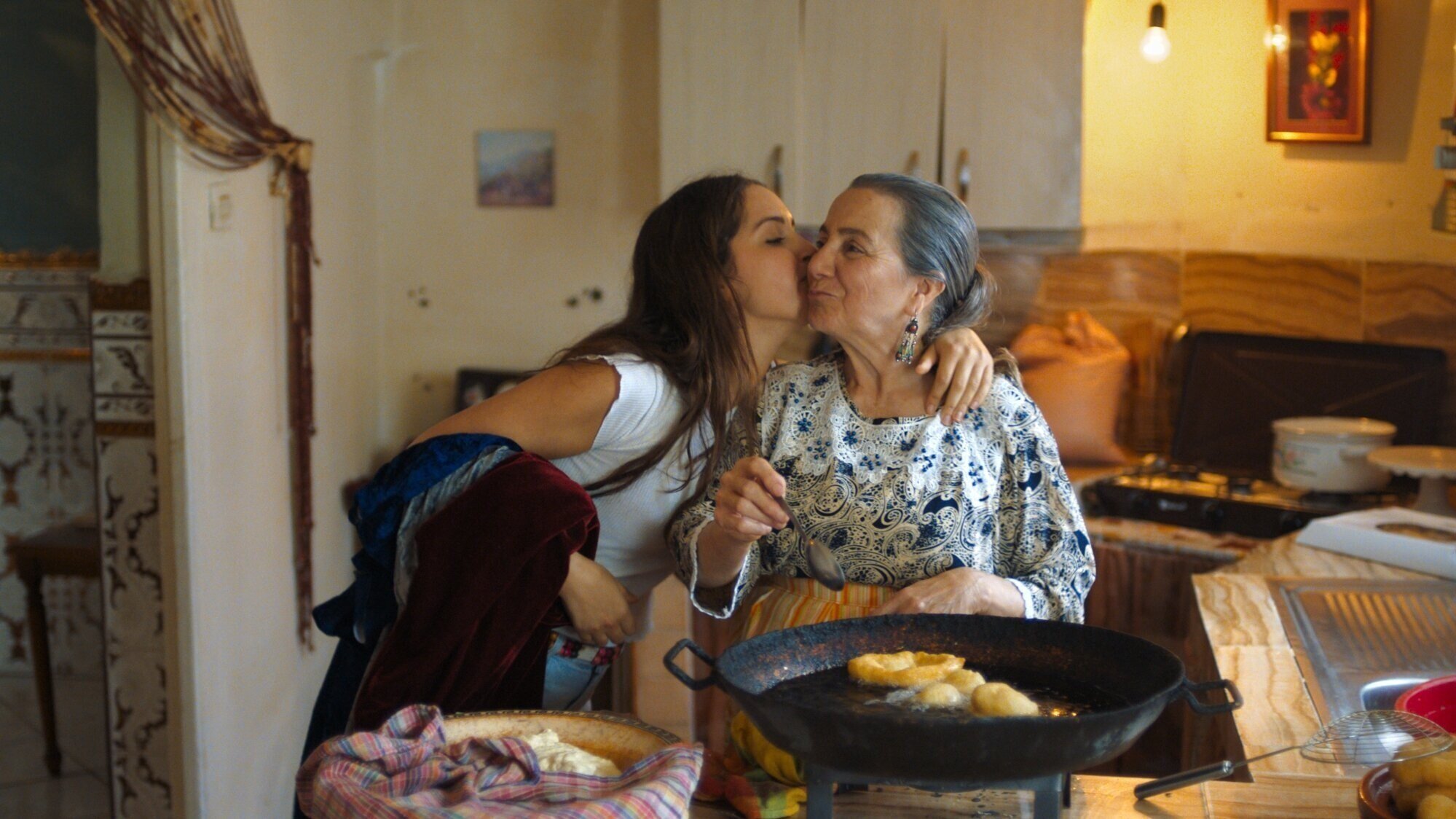Papicha
A sense of realism yields to more fictional elements in this work from Algeria.
Lyna Khoudri and Nadia Kaci
The title of Mounia Meddour's debut feature Papicha is accompanied by a statement indicating that the screenplay, by Meddour herself with Fadette Drouard, is freely inspired by real events. Indeed, the film's importance lies in the basic reality of what it shows us: the lives of schoolgirls such as the 18-year-old Nedjma sometimes referred to as Papicha (Lyna Khoudri) in the conditions that pertained in Algiers in 1997. A pre-credit sequence shows Nedjma and her friend Wassila (Shirine Boutella) who are university students slipping out at night to live it up at a dance. There they can put on lipstick and smoke cigarettes and generally behave in a way that fits with their wish to defile posters promoting the necessity of women wearing the hijab. All of this is most realistically presented but cleverly it also feels like a metaphor expressing the need of this generation living under the heel of Islamic fundamentalism to find a wider freedom of expression. The state of things in Algeria is such that Nedjma and Wassila are struggling with what is imposed on them while their roommate, the pious Samira (Amira Hilda Douaouda), seems to accept the fate of an arranged marriage as laid out for her. No wonder that many other girls such as Kahina (Zahra Menel Doumandji) are desirous of moving away to start a new life elsewhere, in her case in Canada.
The first third of Papicha sets this out with complete conviction as it leaves the actual violence and turmoil of the times to emerge only in the news headlines that refer to car bomb explosions and the like. Only at the close of this section of the film does violence erupt into the story itself and, although it is portrayed in what seems a rather mannered style, the incident is all too credible. Up to this point Meddour's debut is notable for its mastery and its ability to never suggest a work of fiction.
Unfortunately, and in contrast, what follows seems to me to be of a different order. Some critics have carped at a climax which brings in further violence when Nedjma, a keen dress designer, is unofficially allowed to put on a show in the university and armed men burst in. I share their doubts because the way in which this is set up lacks conviction, but I feel also that the middle passages of the film are weak and that for two reasons. On the one hand, the marked emphasis here on Nedjma's dress-making comes as an anticlimax after that first on-screen violence which tragically upturns the life of her family. On the other hand, further fresh elements - a romantic sub-plot featuring Nedjma and a boyfriend (Yasin Houicha) and a dramatic development involving Samira which hardly fits the view of her character that we have been given - carry a fictional tang quite missing in the film's first forty minutes or so.
Khoudji is splendid in the title role and Meddour's technical qualities are matched by her deep commitment to the deeply worthwhile material. All of that is to be applauded, but I cannot help feeling that the impressive quality of the first third adds substantially to the sense of disappointment when it is not kept up. However, I can well understand why many viewers value Meddour's intentions so much that they seek to downplay any falling off.
MANSEL STIMPSON
Cast: Lyna Khoudri, Shirine Boutella, Amira Hilda Douaouda, Yasin Houicha, Zahra Manel Doumandji, Marwan Zeghbib, Meriem Medjkrane, Samir El Hakim, Khaled Benaïssa, Lina Boudraa.
Dir Mounia Meddour, Pro Mounia Meddou, Patrick André, Xavier Gens and Gregoire Gensollen, Screenplay Mounia Meddour, with Fadette Drouard, Ph Léo Lefèvre, Pro Des Chloé Cambournac, Ed Damien Keyeux, Music Robin Coudert, Costumes Catherine Cosme.
The Ink Connection/High Sea Production/TAYDAFilm/Scope Pictures-Peccadillo Pictures.
108 mins. France/Algeria/Belgium/Qatar. 2019. Rel: 7 August 2020. Cert. 15.


